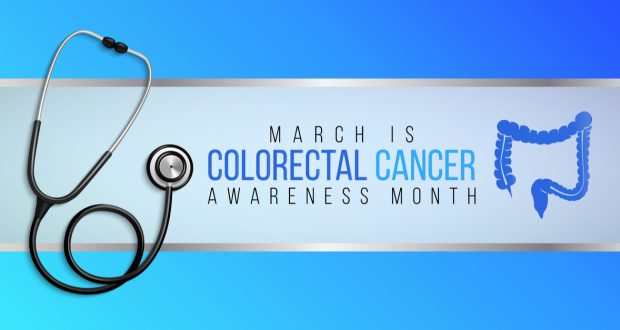By: Red Hot Mamas
Published: March 10, 2021
Written By Karen Giblin- Red Hot Mamas
In the United States, colorectal cancer is the third leading cause of cancer-related deaths in men and in women, and the second most common cause of cancer deaths when men and women are combined. According to the American Cancer Society, it’s expected to cause about 53,000 deaths during 2021.
Risk Factors
There are several factors which may increase a person’s chances of getting colon or rectal cancer, including:
- Age – chances of being diagnosed with colorectal cancer increase as a person gets older
- Family history – having close relatives with colorectal cancer increases a person’s risk of developing the disease
- Ethnicity – Jews of Eastern European descent have a higher rate of colon cancer
- Genetic alterations – certain syndromes that involve family members having hundreds of polyps in their colon or rectum may make someone more likely to get colorectal cancer
- History of colorectal polyps – common in people over the age of 50, some growths on the inner wall of the colon or rectum can become cancerous
- History of bowel disease – a disease called ulcerative colitis (Crohn’s colitis) increases the risk of colon cancer
- Diet – diets high in fat and low in calcium, folate and fiber may increase the risk
- Lack of exercise – people who are not active have a higher risk of colorectal cancer
- Overweight – being very overweight increases a person’s risk
- Smoking – may increase risk of developing polyps and colorectal cancer
- Alcohol – heavy use of alcohol has been linked to the disease
Signs and Symptoms
Men and women who experience any of the following signs or symptoms should consult their healthcare provider:
- Change in bowel habits
- Diarrhea, constipation or feeling that the bowel does not empty completely
- Blood in the stool
- Stools that are narrower than usual
- Abdominal discomfort such as cramps, gas pain or bloating
- Unexplained weight loss
- Fatigue
- Nausea and vomiting
Screening
Screening is the process of looking for cancer or pre-cancer in people who have no symptoms of the disease. Regular colorectal cancer screening is one of the most powerful tools for preventing colorectal cancer.
If you’re age 45 or older, you should start getting screened for colorectal cancer. People at higher-than-average risk should discuss screening at an earlier age with their physicians.
Several types of tests can be used. Talk to your health care provider about which ones might be good options for you. No matter which test you choose, the most important thing is to get tested.
Several test options are available for colorectal cancer screening:
Stool-based tests
- Highly sensitive fecal immunochemical test (FIT) every year
- Highly sensitive guaiac-based fecal occult blood test (gFOBT) every year
- Multi-targeted stool DNA test (mt-sDNA) every 3 years
Visual (structural) exams of the colon and rectum
- Colonoscopy every 10 years
- CT colonography (virtual colonoscopy) every 5 years
- Flexible sigmoidoscopy (FSIG) every 5 years
There are some differences between these tests which you can discuss with your healthcare provider to determine which test might be the best option for you.
The most important thing is to get screened, no matter which test you choose!.
 Red Hot Mamas In Charge of Change.
Red Hot Mamas In Charge of Change.




